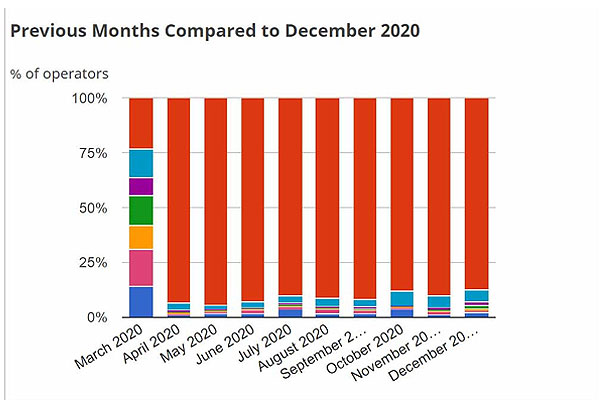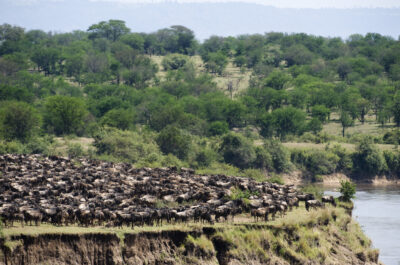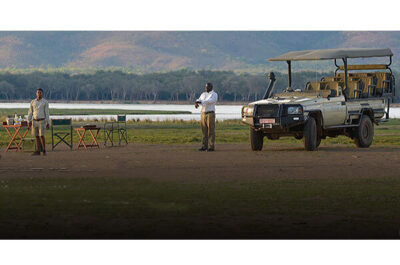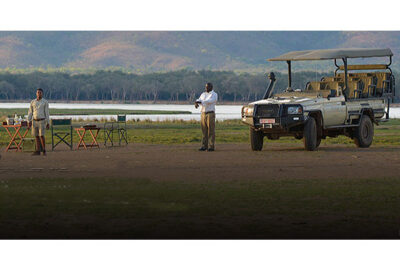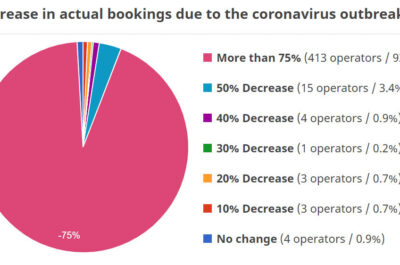The news about the vaccines resulted in a slight improvement from previous surveys, bringing hope to tour operators as they start to see some light at the end of the tunnel. For now, the improvement is still small and until the situation recovers significantly, the overall decline continues to be a massive issue for Africa’s US$12.4 billion¹ safari industry.
SafariBookings.com, an online marketplace for African safari tours, recently held its tenth monthly survey among 261 safari tour operators. The survey was a comprehensive analysis of the impact of the coronavirus pandemic in the safari industry, and associated drop in international tourism arrival numbers.
The emergence of vaccines successfully negotiating their trial stages and on the cusp of widespread distribution in Western countries has brought hope. Many operators believe that a vaccine is the key to a return to work for the industry, as this operator from Tanzania says, “Honestly things aren’t going really well, nobody knew the pandemic would turn out to be this serious and impactful to the tourism industry globally for the whole of 2020. We just hope the vaccines will be a success because that’s our only hope to get back in business fully!” And this from a Kenyan operator: “Clients are fearing to travel at this time but once a vaccine is approved, then things will be back to normal.”
Meanwhile most tour operators continue to experience a disturbing decline in bookings of at least 75%. This is in line with the previous nine surveys that we have conducted, with just a very small improvement in booking requests received by operators, along with slightly fewer cancellations differentiating this survey.
As one operator from South Africa said, “Most of Europe remains in lockdown. The US is at the peak of the pandemic. People remain very nervous and hesitant to book, in spite of the fact that airlines and the tourism industry across Africa have put robust protocols in place to ensure the safety of guests and minimize the risk of infection.”
No less than 90% of operators claimed to have lost at least three quarters of the bookings they would usually receive around this time. A Kenyan operator summed it up, “At this time of the year we don't have a single booking for Christmas which is not our normal.” This Tanzanian operator confirmed the fall away in bookings, “No clients have recently made bookings with us due to the pandemic.”
About two thirds of operators who took part in our latest survey confirmed that cancellations on existing bookings had increased by at least 75%. In all, around 10% of operators said it was business as usual. “Things looked slightly positive, but the second wave of the pandemic has led to a lot of postponed plans and cancelled bookings. Hope the situation improves soon” an operator from Kenya said.
All safari countries have reopened their borders, but few tourists have returned. This South African operator laments the stuttering recovery, “The hoped-for recovery has not yet happened. Our borders are open but the second and third waves in many countries are keeping demand low. Flights are also a problem. No flights or flights being cancelled. We hope for a strong recovery in 2021.”
This comment from an operator in South Africa sums up the resilience and optimism still found in the safari industry despite the enormous setbacks of 2020, “Things are hopeful for the safari industry, and we are getting a trickle of requests, but there is still so much uncertainty with making such long term plans as a safari trip; especially given the 'second wave' and turmoil in the northern hemisphere. It is still a very tough time and all the best to those operators hanging on out there.”
Tatiana is the news coordinator for TravelDailyNews Media Network (traveldailynews.gr, traveldailynews.com and traveldailynews.asia). Her role includes monitoring the hundreds of news sources of TravelDailyNews Media Network and skimming the most important according to our strategy.
She holds a Bachelor's degree in Communication & Mass Media from Panteion University of Political & Social Studies of Athens and she has been editor and editor-in-chief in various economic magazines and newspapers.












